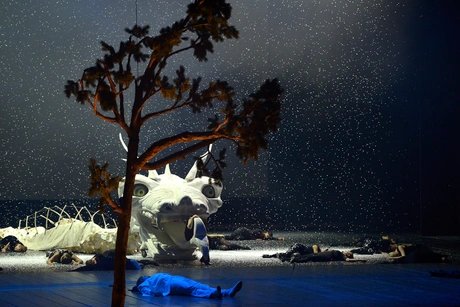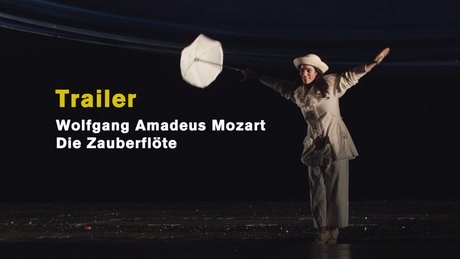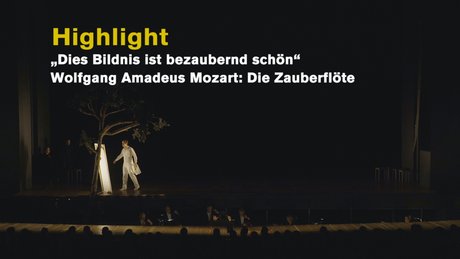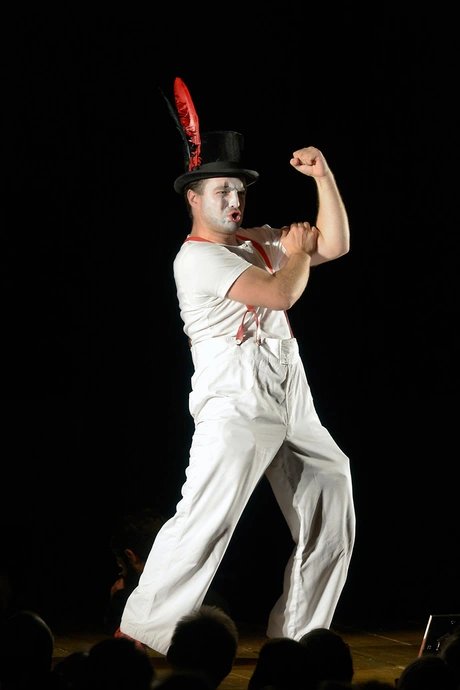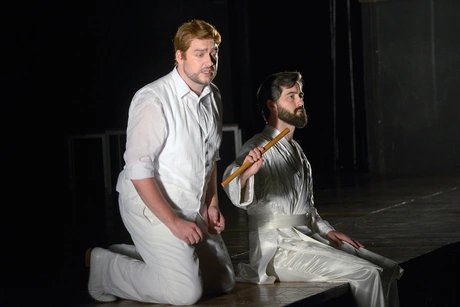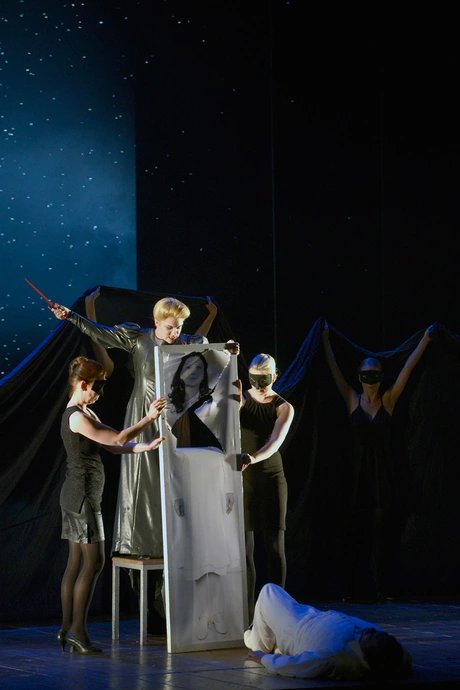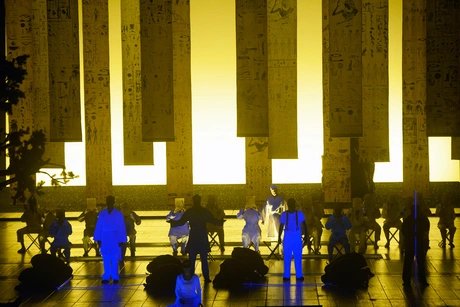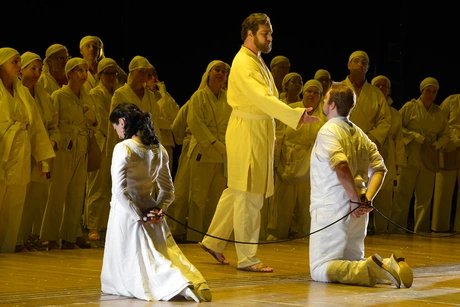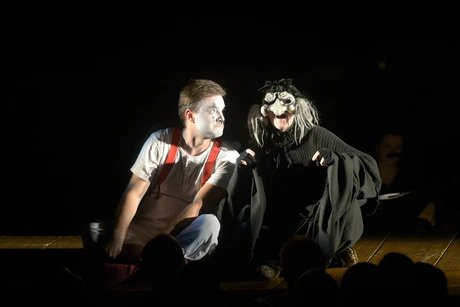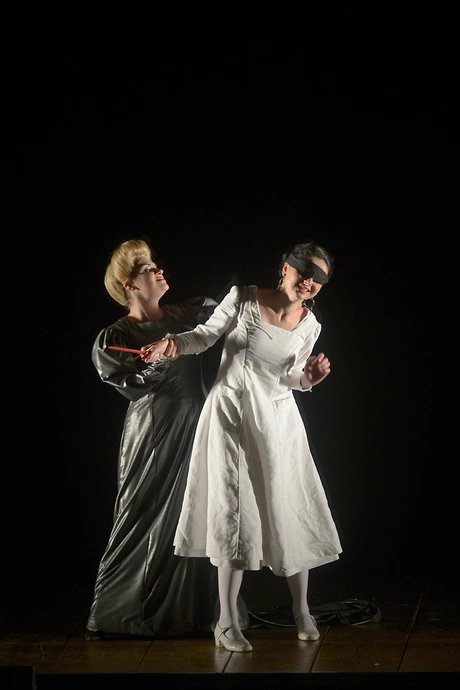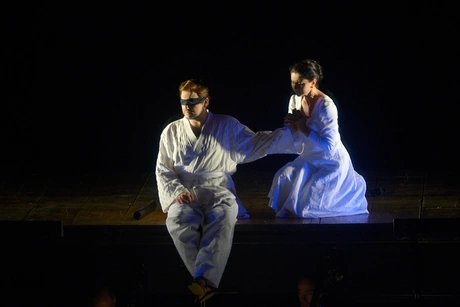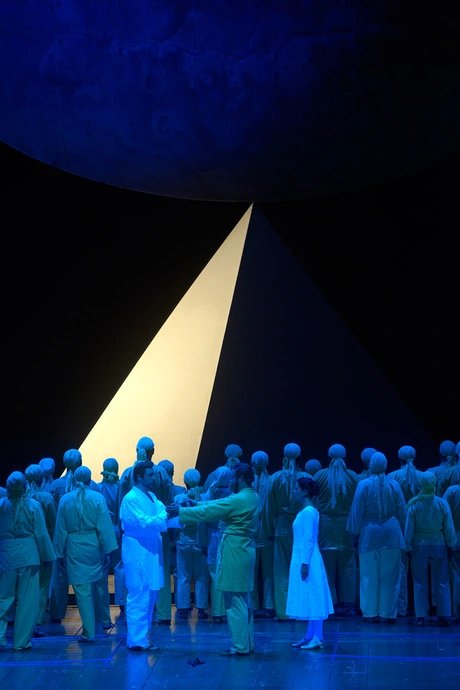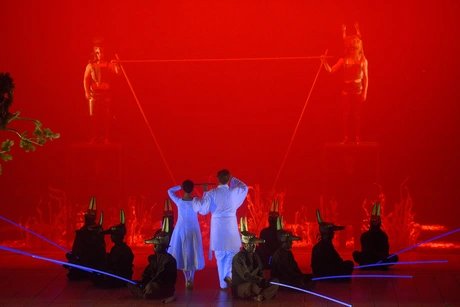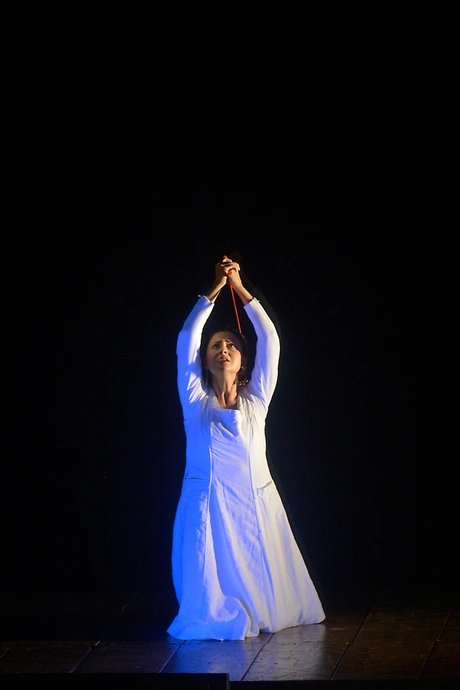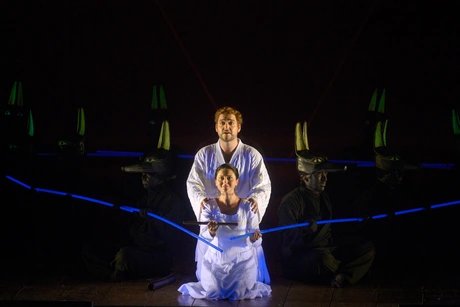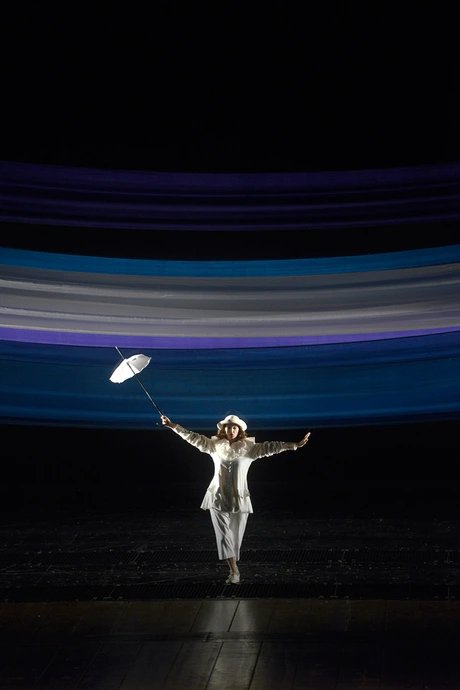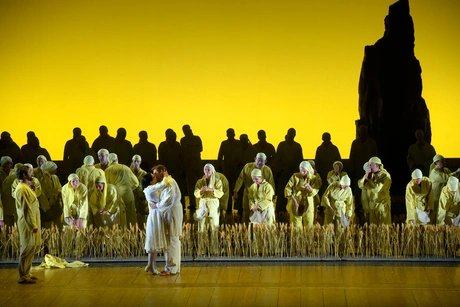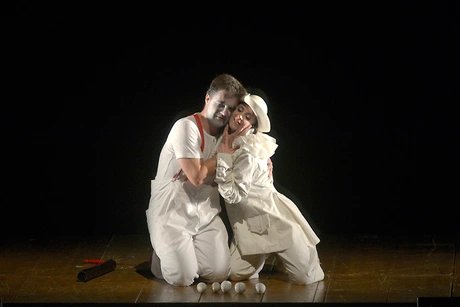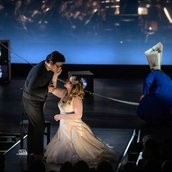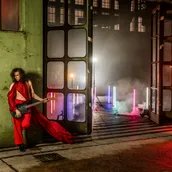
Wolfgang Amadeus Mozart's The Magic Flute is one of the most frequently performed operas worldwide – and has been a favorite with audiences at the Deutsche Oper Berlin for decades.
In Günter Krämer's visually stunning, imaginative production, Mozart's timeless masterpiece unfolds between fairy tales, mysticism, and philosophy – musically multifaceted under the direction of Giulio Cilona, Friedrich Praetorius, and Anna Handler.
An operatic classic between fairy tales and mystery
The Magic Flute combines elements of Viennese folk theater, Masonic symbolism, and fairy tales – captivating audiences across generations. The young Prince Tamino is tasked with freeing the beautiful Pamina from the clutches of the sun priest Sarastro. With the help of a magic flute and accompanied by the bird-loving Papageno, he embarks on a perilous journey full of trials.
But the apparent lines between good and evil increasingly blur – and what begins as a rescue mission ends in a spiritual initiation centered on themes such as love, wisdom, and humanity.
Mozart's Music: Timeless and Profound
The composition of The Magic Flute lends the characters emotional depth and translates their inner conflicts into a universal musical language. Whether it's the dramatic aria of the Queen of the Night, the solemn choral passages of the priestly world, or the humorous scenes with Papageno – Mozart's score delights both beginners and experienced opera fans. The opera is therefore not only a musical classic, but also an ideal introduction to the world of opera for children and families.
About Günter Krämer's Production
Director Günter Krämer presents the contrast between light and dark, sun and moon, good and evil as the central motif of the opera. His visually impressive stage world uses symbolic colors, clear contrasts, and poetic imagery to portray the duality of nature and culture, male and female.
The enchanting scenes, striking costumes, and imaginative sets make The Magic Flute an unforgettable experience even for young audiences.
For over 30 years, this production has been one of the most popular at the Deutsche Oper Berlin.
Cast and Crew
- Conductor: Giulio Cilona / Friedrich Praetorius / Anna Handler
- Director: Günter Krämer
- With soloists from the Deutsche Oper Berlin ensemble
Duration: approx. 3 hours / One intermission
(Sung in German with German and English surtitles)
Additional information
Opera in two acts
Libretto by Emanuel Schikaneder
First performed on 30. September, 1791 in Vienna
Premiered at the Deutsche Oper Berlin on 24. September, 1991
Pre-performance lecture (in German): 45 minutes prior to each performance
Libretto by Emanuel Schikaneder
First performed on 30. September, 1791 in Vienna
Premiered at the Deutsche Oper Berlin on 24. September, 1991
Pre-performance lecture (in German): 45 minutes prior to each performance
Participating artists
Dominic Limburg (Musikalische Leitung)
Günter Krämer (Inszenierung)
Andreas Reinhardt (Bühne, Kostüme)
Thomas Richter (Chöre)
Tobias Kehrer (Sarastro)
Kangyoon Shine Lee (Tamino)
Padraic Rowan (Sprecher)
Benjamin Dickerson (1. Priester)
Jörg Schörner (2. Priester)
Hye-Young Moon (Königin der Nacht)
Lilit Davtyan (Pamina)
Flurina Stucki (1. Dame)
Karis Tucker (2. Dame)
Aleksandra Meteleva (3. Dame)
Alexandra Oomens (Papagena)
Philipp Jekal (Papageno)
Burkhard Ulrich (Monostatos)
Hong-Kyun Oh (1. Geharnischter)
Volodymyr Morozov (2. Geharnischter)
Solisten des Tölzer Knabenchores (Drei Knaben)
Chor der Deutschen Oper Berlin (Chöre)
Orchester der Deutschen Oper Berlin (Orchester)
